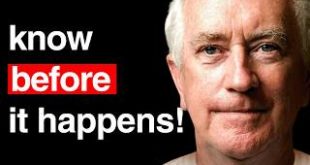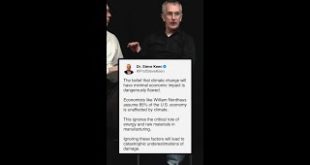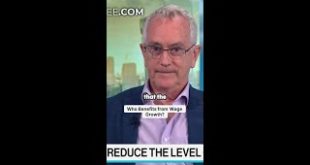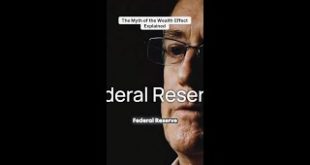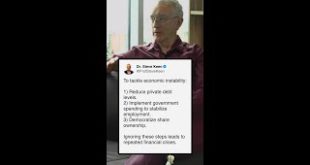Mainstream economics has a blind spot. It ignores private debt. This oversight is like trying to navigate a ship without a compass. You might think you're on course, but the reality is you're lost at sea. Credit is the lifeblood of the economy. It fuels growth and drives performance. When we overlook it, we miss the crucial factors that determine economic health. Take a look at the relationship between credit and unemployment. From 1990 to 2014, a staggering correlation...
Read More »Top Economist Proves Financial Crisis In 7 Minutes
Predict Crisis before it happens - Get Ravel for free here: patreon.com/ravelation Engineers, Finance, and IT Pros: Learn 50+ years of Real Economics in only 7 Weeks. Weekly with me. Learn more: apply.stevekeenfree.com Join ~10,000 others in downloading my free 'Funny Money' Bundle (2 books, worth $60): new.stevekeenfree.com -- Who is Dr. Steve Keen? Dr. Steve Keen is an influential economist who has dedicated over 50 years to challenging mainstream economic theories. Since his days as...
Read More »Next Fed Chair’s Game-Changing Vision.
Next Fed Chair's Game-Changing Vision.
Read More »Energy: The Missing Link in Economics.
Mainstream economics is like a ship lost at sea. It sails on the waves of outdated theories. Energy is the wind that fills its sails. Without it, the ship drifts aimlessly. Labor without energy is like a car without fuel. It won't move. Capital becomes a mere decoration. A beautiful sculpture, but utterly useless. Mainstream economists cling to their models. They believe these models represent reality. But reality is a complex web of energy flows. Imagine trying to bake...
Read More »Inequality Fuels Financial Crisis?
Inequality Fuels Financial Crisis?
Read More »Climate Change Ignored by Economists
The belief that climate change will have minimal economic impact is dangerously flawed. Imagine a factory. It relies on energy and raw materials. Now, picture that factory in a world where climate change disrupts energy supplies. Suddenly, the factory can't produce as much. That's not just a minor hiccup. It's a major economic blow. Economists like William Nordhaus assume that 85% of the U.S. economy is unaffected by climate change. This is like saying a ship can sail...
Read More »Wage Growth Is Not a Myth!
Wage Growth Is Not a Myth!
Read More »Rising Debt Causes Economic Crises
Neoclassical economists ignore the instability of capitalism. This is a common belief. Many think capitalism is a stable system. They believe markets naturally find equilibrium. But this is fundamentally wrong. Hyman Minsky showed us that rising debt leads to economic crises. His insights reveal that debt accumulation creates instability. When debt rises, so does risk. The more we borrow, the more vulnerable we become. This isn't just theory; it's history. Look at the...
Read More »Wealth Effect: A Federal Reserve Myth.
Wealth Effect: A Federal Reserve Myth.
Read More »End Financial Crises Now.
To tackle economic instability, many believe that simply tightening regulations on banks and financial institutions will do the trick. This belief is fundamentally flawed. Regulations alone won't address the root cause of instability, which is excessive private debt. When people are drowning in debt, they can't spend. This leads to a vicious cycle of reduced consumption and economic stagnation. In fact, during the Great Depression, the more debtors paid, the more they owed. This...
Read More » Steve Keen’s Debt Watch
Steve Keen’s Debt Watch


